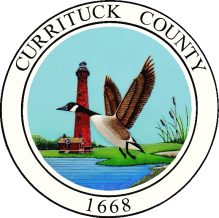Trap-Neuter-Return (TNR) Program Guidelines
Print Program Guiidelines (PDF)
Property Owner Consent Form (PDF)
Caregivers/Participants
Trap, Neuter, Return (TNR) guidelines will be shared with anyone wishing to participate in the TNR Program. Individuals wishing to be considered a Feral Cat Caregiver in Currituck County must register with Currituck County Animal Services (CCAS).
Registering helps to maintain healthy and lawful community cat colonies within Currituck County and helps reduce community cat populations over time.
Feral/Community Cat Caregivers and Trap, Neuter, Return Participants are expected to make reasonable, good faith efforts to:
- Report any bite or non-bite contact (scratch) to the appropriate authorities.
- Adhere to all applicable confinement and observation measures pursuant to Currituck County Ordinance 3-72 (Rabies).
- Notify Currituck County Animal Shelter (CCAS) of the existence of community cat colonies, along with information concerning anyone who may be caring for the cats.
- Maintain a colony where all cats are sterilized, ear-tipped, and vaccinated against rabies and Feline Viral Rhinotracheitis, Calicivirus, and Panleukopenia.
- Keep all veterinary records, and provide these to CCAS, upon request.
- Read and follow CCAS’ Humane Trapping Guidelines before starting any trapping for CCAS or any other TNR program.
- Check each cat for a microchip or other sign of ownership. If signs of ownership are found, the cat must be surrendered to CCAS pursuant to Currituck County Ordinance 3-87.
- Return TNR cats to the location where they were originally trapped.
- Keep all rabies vaccines up to date pursuant to Currituck County Ordinance 3-69. Feral Cat Caregiver may contact CCAS to request a cat trap loan for purposes of confining and transporting feral cats for a rabies booster vaccine.
- Provide food/water and/or shelter in a way that minimizes nuisance and unsanitary conditions. Food must be left out for short periods only (10-15 minutes, two times per day), and then removed. All bowls, shelters, bedding MUST be clean/free of odors/bugs, mold, rodents and waste. Water dishes must be clean, un-tippable, and contain potable water.
- Pick up any bowls, trash, debris or waste left by the cats.
- Provide veterinary care to community cats who are visibly ill or injured (which may include contacting CCAS for a cat trap loan to surrender the cat for humane euthanasia).
- Find another person to care for the cats during the temporary or permanent absence of the primary caregiver.
- Properly dispose of any community cats found deceased (may bring to CCAS for disposal).
- If cats are located on the property of owner, consent must be obtained from that property owner to trap the cats..
Currituck County Animal Shelter Role
Currituck County Animal Shelter (CCAS) role and responsibility in relation to the Trap, Neuter Return (TNR) program, feral/ community cat caregivers/Trap, Neuter, Return participants and mitigation of complaints/violations of the TNR Guidelines includes:
- CCAS will provide the TNR Program Guidelines and flyers to interested parties.
- CCAS will continue to impound cats (TNR or otherwise) that pose an imminent health risk or danger to the public or are severely injured or sick.
- CCAS will comply with State of North Carolina Health Department recommendations relating to rabies, quarantine, impoundment, euthanasia and any possible public health risk, as it pertains to community cats.
- CCAS will enforce the TNR Program Guidelines listed above in the following ways:
- Initial complaint: If a complainant provides the name and contact information for a feral/ community cat caregiver or participant, then CCAS will attempt to make contact to provide a copy of this document and other TNR literature to make them aware of the TNR Program guidelines and available resources. The complainant will be provided with TNR Program guidelines and humane deterrent information.
- If a violation(s) is repeatedly reported and substantiated, a feral/ community cat caregiver or participant will be issued a notice to comply and will have up to 90 days to come into compliance with the TNR Program Guidelines. CCAS may reduce the time to come into compliance if the situation creates a public health or animal welfare concern.
- TNR participants and/or Feral/ Community Cat caregivers who comply with the TNR program guidelines are not considered owners. Therefore, feeding or otherwise caring for community cats with an ear tip shall not be deemed a nuisance condition unless it is detrimental to public health, safety, and welfare of the environment.
- TNR participants and/or Feral/ Community Cat caregivers who are not in compliance with the TNR program guidelines set forth above and in CCAS’ TNR guidelines.

